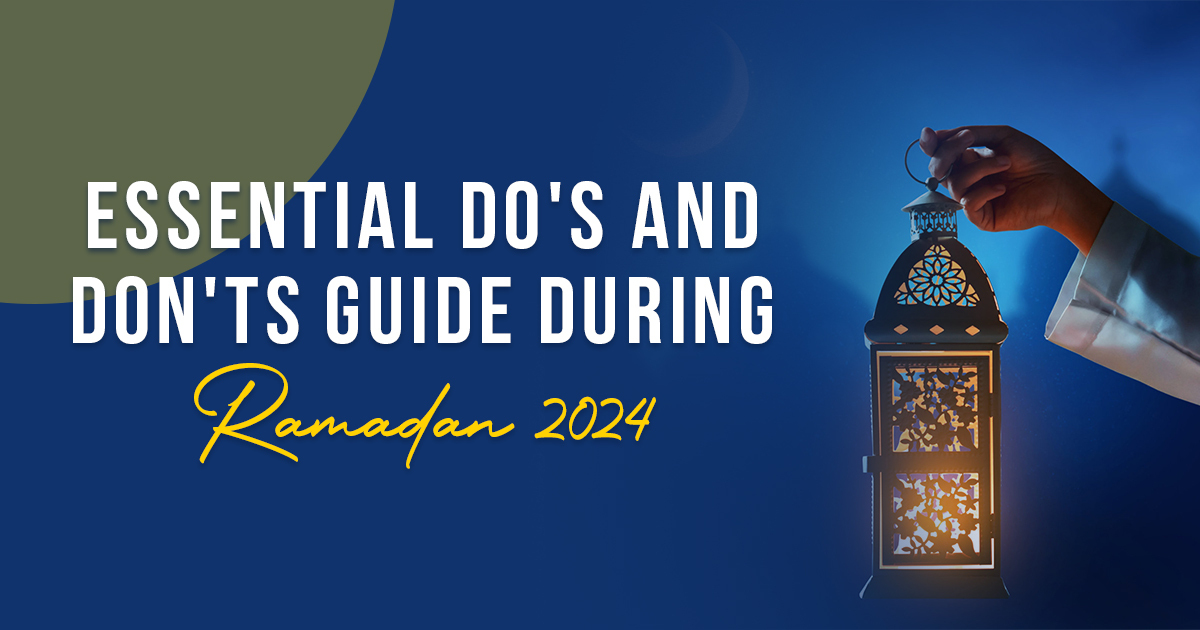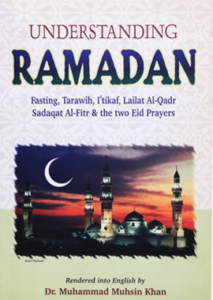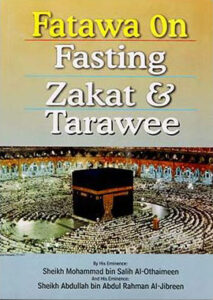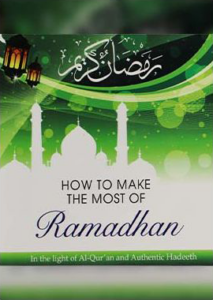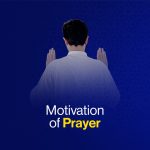Ramadan, the ninth month of the Islamic lunar calendar, is a time of deep spiritual reflection, prayer, and community for Muslims worldwide. Observing fasts from dawn until sunset, this period is dedicated to cleansing the soul, fostering a sense of empathy towards the less fortunate, and enhancing devotion to God.
However, to fully embrace the spirit of Ramadan and ensure it is a time of both personal and communal upliftment, it is crucial to be aware of certain practices – the essential do’s and don’ts that can help optimize this blessed month. Here is a comprehensive Darussalam guide to navigating Ramadan 2024 with grace and devotion.
Introduction to Ramadan Observance
Understanding the Significance
Spiritual Rejuvenation: A month for purifying the soul, increasing holiness, and experiencing spiritual growth.
Fasting (Sawm): One of the Five Pillars of Islam, fasting during Ramadan is obligatory for all adult Muslims, with specific exemptions.
Read More: Ramadan Zakat: Fulfilling Your Pillar of Islam
Essential Do’s for Ramadan 2024
Embrace the month of Ramadan by integrating these essential practices into your daily routine.
Increase Your Acts of Worship
Extra Prayers: Engage in Taraweeh prayers each night in addition to the five daily prayers.
Quran Recitation: Aim to read the Quran in its entirety, reflecting on its teachings and incorporating them into your life.
Practice Self-Discipline
Mind Your Language: Refrain from gossip, lies, or hurtful speech.
Control Anger: Exercise patience and restrain any negative emotions.
Cultivate Empathy and Generosity
Charitable Acts (Zakat and Sadaqah): Increase your charitable contributions to help those in need.
Volunteering: Offer your time and services to charitable causes.
Strengthen Community Ties
Iftar Dinners: Share meals with family, friends, and the community to foster a sense of togetherness.
Support New Muslims and Non-Muslims: Offer support and kindness, using Ramadan as an opportunity for positive outreach.
Click Now to Align Your Fasting: Ramadan 2024 UK Calendar
Key Don’ts During Ramadan
Avoid certain actions and behaviors to maintain the sanctity of your fast and honor the spirit of Ramadan.
Abstain from Food and Drink during Daylight Hours
Intentional Eating or Drinking: Invalidates the fast. If done accidentally, the fast remains valid.
Avoid Ill Conduct
Negative Behaviors: Quarreling, fighting, or engaging in sinful activities contradicts the essence of Ramadan.
Refrain from Excessive Entertainment
Limit Distractions: Minimize engagement with TV shows, music, or social media that detract from spiritual goals.
Respect the Fasting Hours
Public Eating and Drinking: Be mindful of those fasting around you by avoiding public consumption during daylight hours, especially in predominantly Muslim communities.
Navigating Common Challenges
Maintaining Energy Levels
Balanced Suhoor and Iftar Meals: Focus on nutritious foods that provide sustained energy throughout the day.
Dealing with Thirst and Hunger
Adequate Hydration: Ensure proper hydration during non-fasting hours to minimize thirst.
Learn More: Top 5 Darussalam Books for Ramadan 2024
Enhancing Personal Growth
Reflection and Repentance
Self-Evaluation: Use this time for introspection, setting personal goals, and seeking forgiveness.
Cultivating New Habits
Adopt Positive Practices: Ramadan is an ideal time to instill new, beneficial habits that can last beyond the month.
Conclusion: Embracing Ramadan with Open Hearts and Minds
Ramadan offers a unique opportunity for spiritual renewal, increased piety, and community bonding. By adhering to these essential do’s and don’ts, Muslims can ensure a fulfilling observance of Ramadan 2024, deepening their faith and enhancing their personal growth while respecting and uplifting those around them.
By aligning your actions and intentions with these do’s and don’ts, you not only adhere to the foundational principles of Ramadan but also contribute to a community atmosphere of respect, empathy, and spiritual growth.
Read More: Ramadan Fasting: Significance and Health Implications
FAQs About Ramadan 2024
1. What should I do if I accidentally eat or drink while fasting?
Accidental consumption does not invalidate your fast. Cease eating or drinking as soon as you remember, and continue fasting.
2. Can I brush my teeth while fasting?
Yes, you can brush your teeth, but be careful not to swallow any water or toothpaste.
3. How should I respond to negative emotions or situations while fasting?
Prioritize patience and restraint. Remove yourself from negative situations if possible, and remember the purpose and sanctity of your fast.
4. Is it okay to exercise during Ramadan?
Yes, but opt for light to moderate exercise and consider timing it after Iftar to avoid dehydration and fatigue.
5. What if I’m unable to fast due to health reasons?
Those with valid health issues are exempt from fasting but are encouraged to make up the fasts later if possible, or provide a meal to a needy person for each day missed (Fidya).

